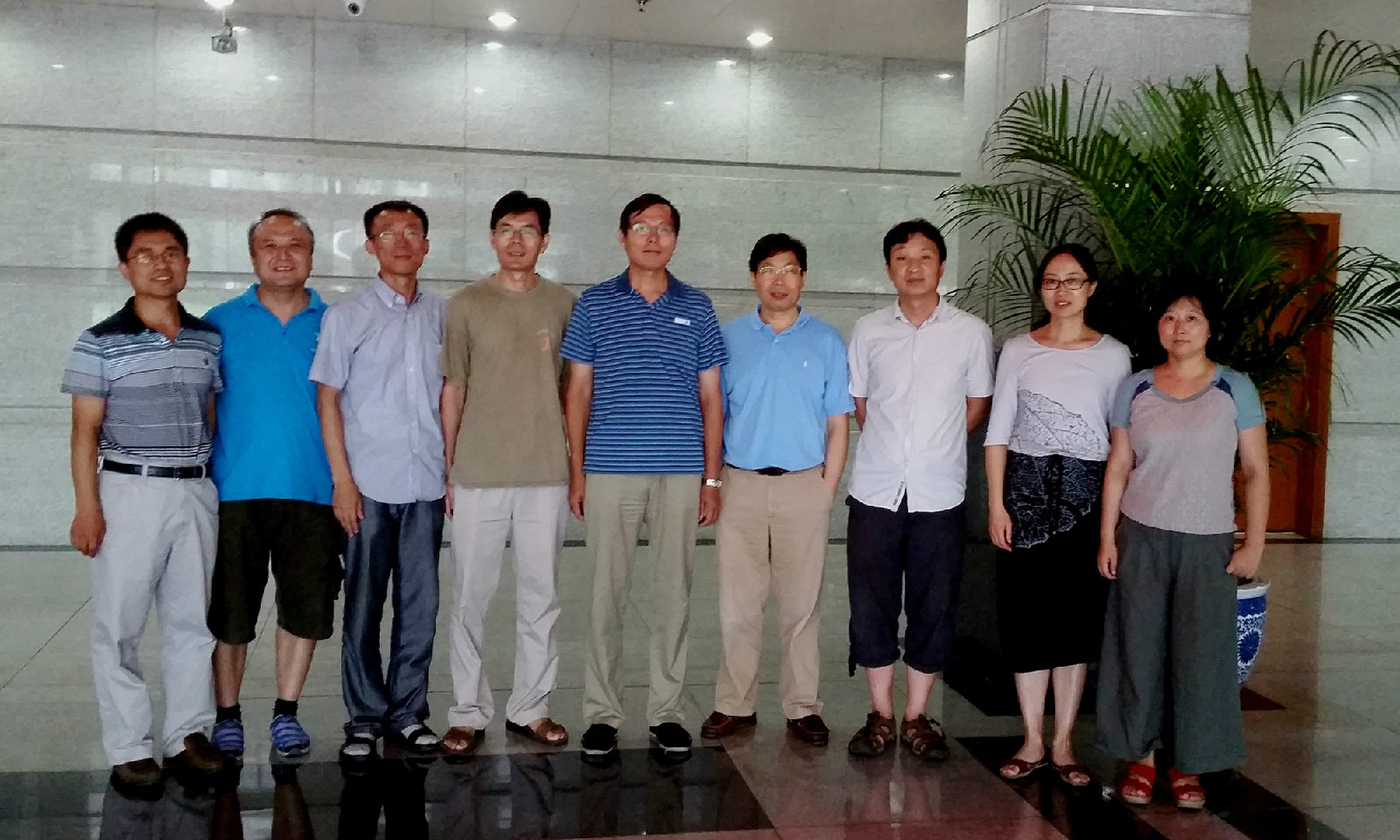Development and Utilization of Molecular Breeding Technologies in Maize
Date:2014-07-23Author:AdminSource:ICS
Team Name: Development and Utilization of Molecular Breeding Technologies in Maize
Research Focus: Researches focus on traits of agronomic importance, including major yield component traits (kernel per row, row number and kernel weight), abiotic stress tolerance (nitrogen and phosphorus use efficiency, and drought tolerance), disease resistance, adaptability (photoperiod sensitivity) and harvest-related traits (ear shape and field drying rate). The technical strategies will be developed and taken to map major quantitative trait loci (QTL) and discover relevant genes, followed by gene functional analysis and development of molecular breeding tools for important QTL or genes. As one of major components for molecular breeding, a genetic transformation system is being established to optimize and improve the transformation efficiency. Other research areas include development of functional molecular markers through bioinformatics and candidate gene discovery approaches using cloned genes with identified gene functions, improvement of the genome coverage for the current maize HapMap and development of marker chips for germplasm evaluation, genetics and breeding through various technologies including resequencing and RNA-seq, development of gene introgression methods for transferring major genes between temperate and tropical maize germplasms and marker-assisted breeding methods for pyramiding multiple genes, and improvement of non-functional marker-based genomic selection methods to facilitate genome-wide selection and integrative selection of major breeding traits.
Research Objectives: to understand the genetic basis of maize traits of agronomic importance, map and clone relevant genes, optimize maize transgenic technology system, develop a complete marker-assisted breeding system and two sets of breeding chips with high efficiency and low cost, and utilize the developed systems in maize breeding.
Team Chief Scientist: XUN Yun-bi
Education Background
Yunbi Xu, a molecular breeder by training, received his BSc degree in Agronomy (1982) from Huazhong Agricultural University and his MS and PhD degrees in Genetics and Plant breeding in 1985 and 1993, respectively, from Zhejiang Agricultural University, China.
Research Area
He is now a professor of ICS-CAAS and also a senior scientist of CIMMYT. As a major or co-author, he has contributed to the development of a series of molecular breeding technologies, particularly for rice and maize, including genome-wide rice SSR markers, large-scale SNP genotyping in maize, seed DNA based genotyping technology, improved selective genotyping, joint linkage-association mapping, maize HapMap2, whole genome strategies for MAS and the concept of etyping (environmental assaying), during his scientific career in Chinese and American universities, international company and research institution. By Feb, 2014, his publications received over 5000 citations with an H index of over 30. His Chinese book Molecular Quantitative Genetics (1994) has been widely used as a textbook in China and his single-authored book Molecular Plant Breeding (2010, CABI) has been recognized worldwide and translated into multiple languages including Chinese and Persian.
He was assistant/associate professor and deputy director of Department of Agronomy, Zhejiang Agricultural University, China (1985-1995); postdoctoral associate, Cornell University, USA (1995-1998); plant molecular biologist and molecular breeder, RiceTec, Inc., Texas, USA (1998-2003); research associate, Cornell University, USA (2003-2006); and maize molecular breeder/senior scientist and the head of Applied Biotechnology Center, International Maize and Wheat Improvement Center (CIMMYT), Mexico (2006-2010).
Team Members: LI Wen-xue, XIE Chuan-xiao, LU Yan-li, ZHENG Hong-jian, ZOU Cheng,WANG Shan-hong, GUO Zi-feng, LIU Chang-lin, MU Chun-hua.

